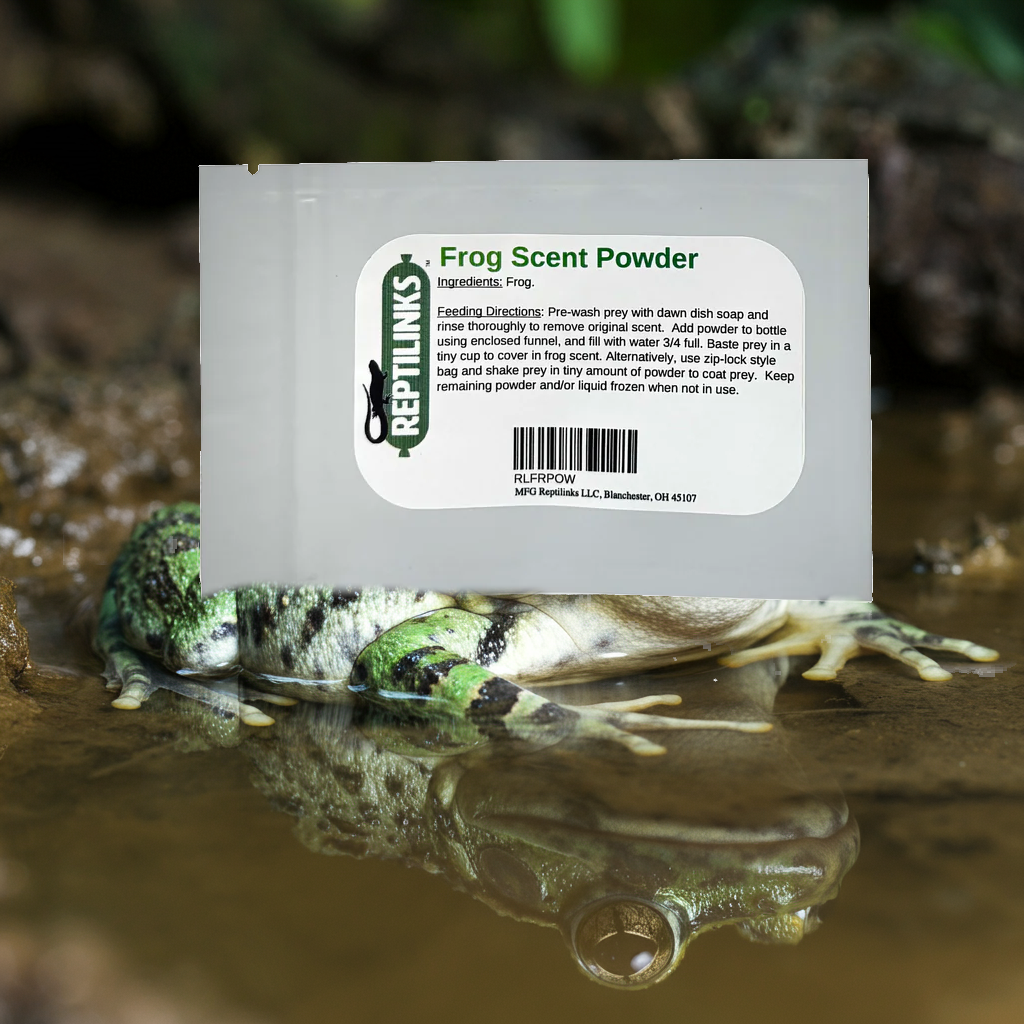There's a strange obsession with the reptile hobby to claim we are victims of dangerous myths. The latest being Responsible Reptile Keeping (RRK) proving that they are, in fact, not here for actual science or education but instead to generate click farm marketing.
If you are a Resolve Reptiles reader then much of this information will look familiar to you. We have an article on this already. We also already have an article outlining that Responsible Reptile Keeping (RRK) is an organization lead by marketing efforts and nothing more.
The video will be linked below to help people understand some of the inherent problems with the reptile hobby. The video itself seems innocent enough with an interviewer asking people if they've ever caught salmonella and the interviewees often replying with a bit of laughter and saying they have not. The video itself has a thumbnail suggesting there's a myth about reptiles and salmonella.
Seems fine, right? Let's dig into why this is extremely reckless and irresponsible.
Responsible Reptile Keeping, The Reptile Salmonella Myth
What is Salmonella?
Salmonella is a bacteria that reproduces inside of the intestinal tract and may cause disease (salmonellosis) in some individuals. Salmonella occurs naturally and you are most likely exposed to it somewhat regularly.
If you are an informed shopper then you will no doubt be familiar with news of salmonella outbreaks in the produce section of your local grocery store.
Under prepared meats and raw meats can have salmonella in their package. This is why, as you most likely know, you are advised to wash your hands after handling any meat.
Produce can be a source of salmonella when produce is contaminated with the bacteria. In some cases, the bacteria is actually contained within plant fibers – when salmonella contaminated water is used on crops the bacteria can actually exist inside the plant. Washing the produce itself may have little value – cooking produce, meats, and other foods appropriately is what prevents transmission.
What is the Effect of Salmonella?
Salmonella infection results in clinical salmonellosis – meaning we have observable disease with a cause that can be assumed to be and/or verified as salmonella. The symptoms include gastrointestinal distress including nausea and diarrhea but also causing other symptoms including fever. These symptoms can be especially dangerous for individuals with preexisting conditions. Diarrhea can lead to dehydration in children, nausea and vomiting can complicate other diseases, and general treatment with antibiotics may have additional effects.
For a healthy adult, salmonella may cause no symptoms at all. The people laughing in video wouldn't be able to answer the question with any intelligent response.
This is one of the many reasons the video itself is completely nonsensical – many of these individuals could catch salmonella from contaminated surfaces, raw chicken, produce, or even dogs and never have known. Even if symptoms were developed a healthy adult should recover in just a few days – and the cause would most likely be chalked up to fast food or similar.
Can My Reptile Give Me Salmonella?
Salmonella lives in the digestive tract of animals. Reptiles, in particular, do not seem to have any ill effect from salmonella. Not only are they not generally affected by salmonella, reptiles are generally very good at hiding disease in general.
If you are a dog owner and your dog is a little under the weather then you may hesitate to share areas and be especially mindful of general sanitation.
Fun fact: Dog owners can catch salmonella from their dogs. Oddly enough, dog owners do not need to make YouTube videos attempting to poke fun at well understood vectors for disease.
Can you catch salmonella from a reptile?
The answer is a resounding yes.
There is no myth here.
The answer is yes.
All pets are a vector for disease in humans.
The answer is yes.
Implying anything else is completely irresponsible.
Reptile keepers and individuals involved in the general reptile industry, such as department store pet shops, may already be familiar with several guidelines about reptiles and salmonella.
It has long been known that aquatic turtles can be a source of salmonella outbreaks with children. This is a compound problem. Children interacting with these animals tend to touch their face and mouth more often than an adult might. The turtles are small enough to be placed in a child's mouth. A turtle's general environment includes a lot of water that drips, splashes, and finds itself in places that may be thought to be "clean".
The CDC (Center for Disease Control) has an article about these turtles if you would like to read further, as well as a warning about Bearded Dragons.
As mentioned above, often harmful organisms from contaminated water can actually become part of produce. You may boil mustard greens while giving them to your bearded dragon uncooked – introducing a vector for salmonella. There have been recalls of lettuce, cucumbers, and other common produce as being contaminated with salmonella.
Reptile food is not the only pet food that can be contaminated. The CDC also links salmonella outbreaks to dry dog food.
Dog owners, as far as I can tell, have never claimed to be victims of the CDC.
The very odd kneejerk reaction of individuals within the reptile hobby, including Responsible Reptile Keeping (RRK), is to attempt to claim that these guidelines are somehow attacks on reptile keeping and to attempt to turn legitimate science and disease prevention into a clickbait article teasing the very idea that animals can have disease – this is not acceptable.
For comparison, the CDC also has many articles on ALL types of pets and avoiding disease. This CDC article alone outlines handwashing, sanitation, and general disease prevention and is worth more than what Responsible Reptile Keeping (RRK) has produced.
Suggesting hand washing is a great start for very young pet owners. The problems around pet ownership include that these disease may disproportionately affect people and may be far more dangerous in many circumstances (such as young children). It has nothing to do with a cute giggle at an interviewer trying to make clickbait.
In Conclusion
A kneejerk reaction that reptiles are specifically targeted as the sole source of salmonella is nonsense. The idea that the link between any animal, including reptiles, can be a vector for disease is common knowledge. Modern science has identified some salmonella outbreaks to be related to animals including small turtles and bearded dragons. They also make links to diseases to other common pets from birds to dogs. Reptile owners are not being singled out and there is no "myth" – it's science.
Making cutesy clickbait videos suggesting salmonella having a transmission vector of ALL pets is a "myth" is dishonest, irresponsible, intentionally pushing disinformation, and outright shameful.






Comments